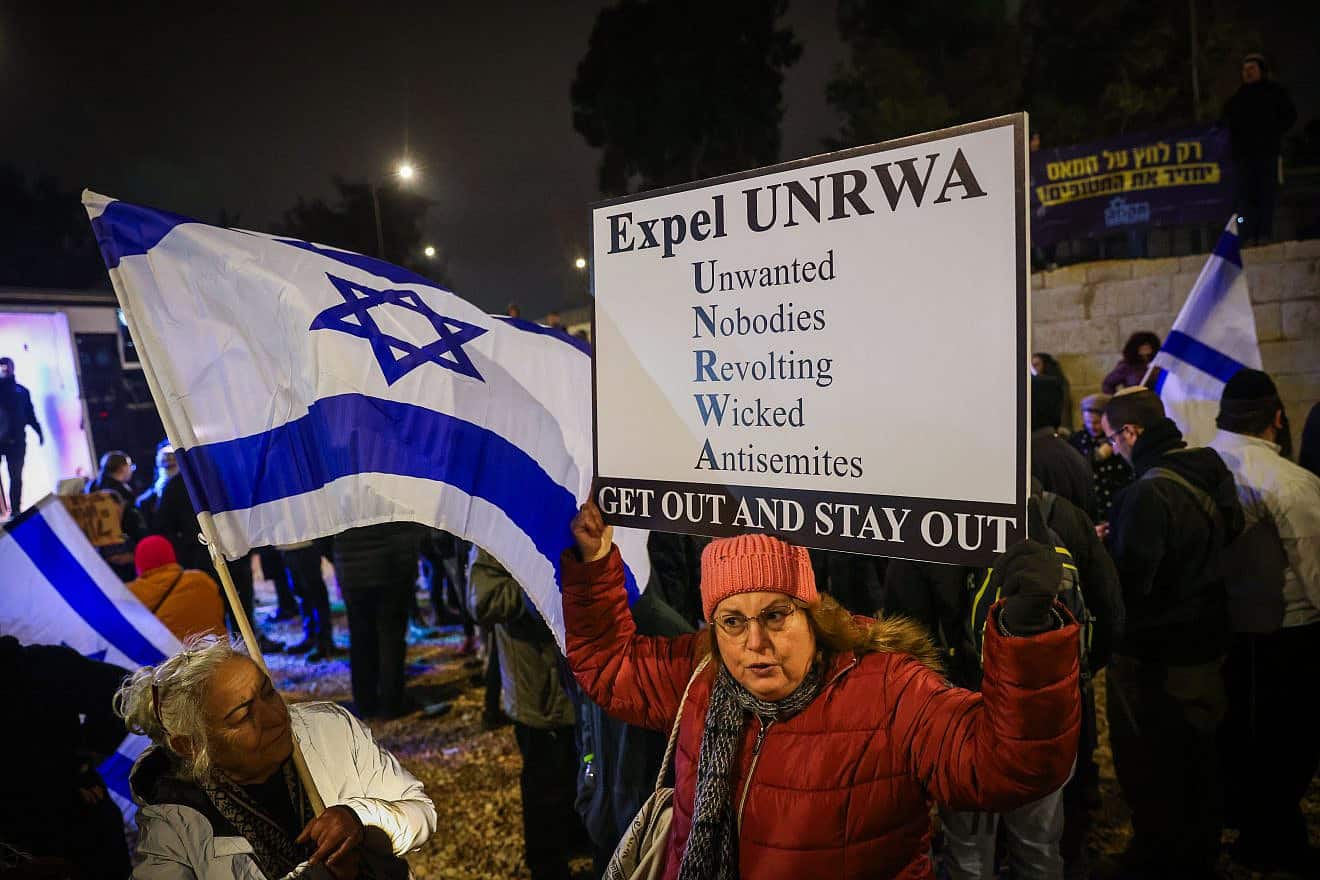The first proposal approved by the Committee, introduced by MK Boaz Bismuth from Likud and merged with an initiative from MK Sharren Haskel from the Yamin Mamlakhti party, stipulates that UNRWA will not operate any representation, provide services, or conduct any activities—directly or indirectly—within the sovereign territory of Israel.
The second proposal consolidates three initiatives submitted by a group of other lawmakers and states that the invitation for UNRWA, based on correspondence exchanged between Israel and the agency dating back to June 14, 1967, concerning Israel’s facilitation of UNRWA’s operations, will expire on October 7, 2024, or upon final approval of the law in the Knesset. Furthermore, the proposal mandates that no state authority, including public officials and bodies, may engage with UNRWA or its representatives.
Following extensive discussions, some of which were open to the public and others classified, the proposals were passed unanimously by the committee. The open sessions included testimonies from social organizations, researchers, and families of victims, some of whom were reportedly harmed by individuals associated with UNRWA in Gaza.
During confidential sessions, the committee, alongside the Foreign, Defense, Justice, and Treasury ministries, examined the far-reaching implications of the proposals across diplomatic, legal, security, and economic domains. Numerous meetings took place between professional bodies and the legal advisory team to ensure the drafts addressed a wide array of concerns raised during the discussions.
Chairman Edelstein emphasized the urgency of the legislation, criticizing UNRWA’s actions during the recent war and highlighting that, “We know that some of the hostages were held by individuals working for the organization.”
The scrutiny of UNRWA intensified following revelations that members of its staff allegedly participated in the October 7 attacks, which resulted in the deaths of at least 1,200 people and the abduction of 252 Israelis and foreigners. The Israeli government has increasingly demanded that UNRWA be stripped of its authority in Gaza, further asserting that humanitarian aid should bypass the agency.
Recently, the UN announced the firing of nine UNRWA staff members for their involvement in the October 7 assaults, but this has been met with outrage in Israel, where officials claim the UN’s internal investigations failed to address the involvement of approximately 100 other personnel. “The UN investigation, which focused exclusively on 19 UNRWA workers, is a disgrace! Too little and too late,” tweeted former Israeli Ambassador to the UN Gilad Erdan, emphasizing that Israel had provided the UN with detailed information about over a hundred UNRWA employees with ties to Hamas.
UNRWA has faced scrutiny not only for its alleged role in the October 7 attacks but also for ongoing accusations of facilitating Hamas operations within its facilities. For instance, Israeli forces discovered a Hamas complex beneath UNRWA’s Gaza City headquarters earlier this year. Furthermore, more than 100 survivors of the October 7 attacks have filed a $1 billion lawsuit against UNRWA, alleging the agency “aided and abetted” Hamas.
With the proposals set to take effect 90 days after their final approval, the committee has mandated regular reporting from the National Security Headquarters to oversee the implementation of the law.
With the Knesset poised to finalize the legislation, the implications for UNRWA’s future operations and funding remain uncertain. Israeli officials are advocating for a restructuring of refugee aid, calling for Palestinian refugees to fall under the mandate of the UN High Commissioner for Refugees, as they assert that the current setup is unsustainable and detrimental to Israeli security.









